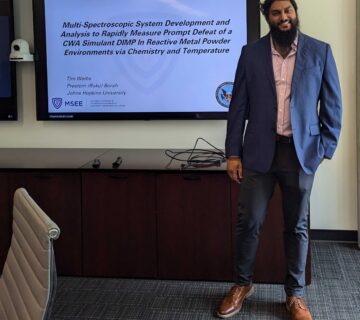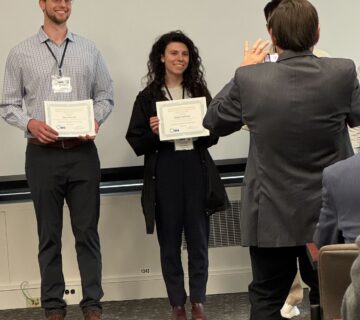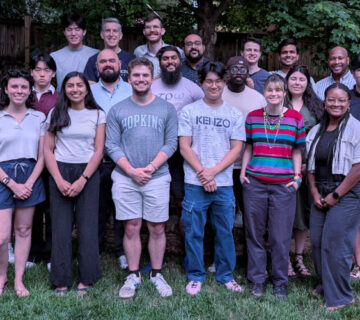Congratulations Dr. Polk!
Abstract:
Thermites are a class of energetic materials that has been widely used for welding, breaching, and enhancing pyrotechnics and explosives. Significant research has been conducted on thermites, investigating methods of generating higher heats of reaction, faster reaction speeds, and increasing gas generation. However, little work has been done on low gas producing or minimally expanding thermite formulations. Thermites with these properties could be used in previously untapped fields, such as sealed vessels and space applications where sustained heat, low gas, and minimal expansion are required to reduce mechanical stresses or additional pressure generation.
In this project I investigated composite metal fuels, and their subsequent involvement in titanium dioxide-based thermite formulations. An in-depth evaluation of the microstructure and ignition properties of aluminum – zirconium composite fuels prepared by arrested reactive milling (ARM) produced several candidates for inclusion in the low gas producing thermite. The aluminum, zirconium, and titanium dioxide thermites were formulated using ARM, and loose milled powders were characterized for microstructure and ignition properties. Following this, the effect of compaction on the burn properties of these thermites was investigated by laser-igniting compressed pellets. This knowledge was transferred to an application, where the most suitable non-expanding thermite was utilized as a heat source for biological decontamination in a sealed vessel. The effectiveness of the thermite as a decontamination method was tested against Bacillus atrophaeus spores. The resulting data showed complete inactivation of all spores, with no damage to the sealed vessel during reaction.




